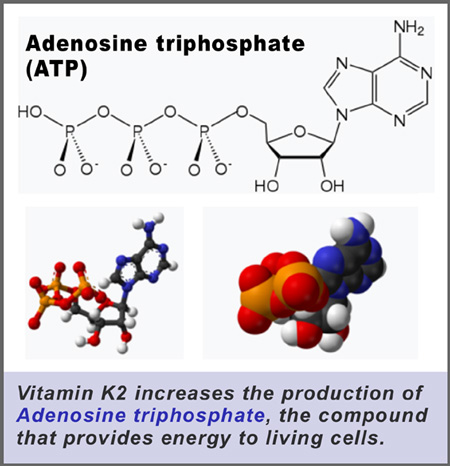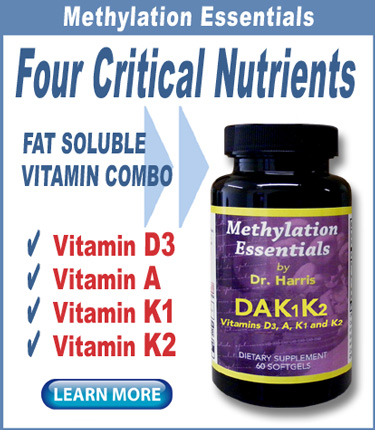Vitamin K was able to offset oxidative stress in vascular muscles and ultimately increase energy, according to a new study from The Netherlands.
The study was conducted at the Cardiovascular Research Institute at Maastricht University, and was presented at the second International Electronic Conference on Nutrients (IECN). IECN is a global event that focuses on nutrition support for immunity, infection, inflammation, and oxidative stress.
The study used the type of Vitamin K known as menaquinone, or Vitamin K2.
Vitamin K2 is the type of Vitamin K is typically found in fermented foods, so is less likely to be consumed in beneficial amounts by the average person.
The mechanism for Vitamin K2’s ability to enhance energy appeared to lie in it’s unique ability to increase ATP production. ATP—or Adenosine triphosphate—is an organic compound that facilitates the numerous processes in living cells. These processes include muscle contraction, nerve impulse propagation, condensate dissolution and chemical synthesis.
Study details
To conduct the research scientists performed a cellular study in which the Vitamin K “pathway” was antagonized by the drug warfarin. The goal of this process was to induce oxidative stress in vascular muscle cells. This type of action in the human body is known to contribute to vascular calcification and cardiovascular disease.
After the inflammation—or “antagonizing”—was induced the researchers introduced Vitamin K2 and monitored the results. This was done by measuring ATP, oxidative stress and extracellular vesicles.
The clear results were that Vitamin K2 counteracted the intracellular oxidative stress—both under normal conditions and in the warfarin/inflammation induced conditions. The Vitamin K2 was also clearly shown to increase ATP production, even in the presence of warfarin.
“Our experiments show that in primary human smooth muscle cells, Vitamin K2 lowers oxidative stress and extracellular vesicles release and increases ATP production. This pathway points to a non-canonical role of Vitamin K2 in the prevention of vascular calcification, unrelated to its canonical role as cofactor for the posttranslational modification of matrix Gla protein,” the authors of the study concluded.
The researchers added that the study showed promise for the ultimate goal of healthy aging, since oxidative stress is involved in many age-related conditions. Since Vitamin K2 reduces oxidative stress, then it can be expected that supplementing would reduce cardiovascular disease, chronic kidney conditions and neurodegenerative disorders.”
Finally, researchers noted that studies on Vitamin K2 have soared in recent years, and the current study shows why the medical community is interested in the ongoing study of the vital nutrient.
After presentation at IECN, the findings were published in Biology and Life Sciences Forum in March 2022.
Building on earlier studies
Maastricht University has been investigating the health benefits of Vitamin K2 since 2004, and these new findings are in line with previous studies which found that Vitamin K2 can decrease oxidative stress and inhibit inflammatory marker.
A Maastricht study conducted earlier in 2022, using nicotine as an inflammatory antagonizer, showed Vitamin K2 to be “an effective antioxidant capable of reducing oxidative stress and nicotine-induced vascular smooth muscle cell calcification.”
Optimal Health Systems offers several formulas providing Vitamin K2, and one product providing a potent K1 and K2 combination. Please follow the links below for more info.
Optimal Longevi-D
(with K2, CoQ10 and Vitamin D)
Optimal 2 Vitamin/Mineral
(with K2 and all other essential vitamins and minerals)
Essential DAK1K2
(with both K1 and K2, and other fat-soluble vitamins)
– – –
Sources: Biology & Life Sciences Forum / MDPI, Wikipedia, Nutraceuticals World.


